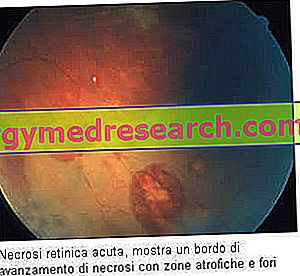Related articles: Coccyx pain
Definition
The coccyx pain - indicated by the medical term coccygodynia - is an algic symptom that affects the terminal tract of the spine (located just above the crack in the buttocks), and the surrounding area.
The coccyx is a bone structure composed of the set of 3-5 vertebral units which, with the exception of the first segment, are fused together. The coccyx represents the last downward section of the spine.
Coccyx pain tends to worsen due to direct compression of the region or when the patient rises from a sitting position. In some cases, it can be so intense as to make normal daily activities, such as driving or bending down, difficult. Sometimes, it may be accompanied by back pain, pain in the hips and buttocks, pain during sexual intercourse and pain before or during the evacuation.
Coccyx pain is a symptom that recognizes several causes. In women, coccygodynia may result from traumatic events associated with childbirth. Towards the end of the third trimester of gestation, the coccyx becomes more flexible; in some cases, the birth can still cause excessive tension of the muscles and ligaments connected to the coccyx, with partial dislocation of the same.
Overweight patients also suffer from coccyx pain, as they are more susceptible to excessive intrapelvic pressure during a prolonged sitting position or an accidental fall.
Very often the coccyx pain is the consequence of a strong impact at the base of the spine, like a fall with landing on the buttocks. The trauma can cause a dislocation of the coccyx (ie a displacement from its natural site) and an excessive or abnormal mobility of the same; all this triggers a local chronic inflammation. This process, in addition to causing pain, leads to the degeneration of the surrounding tissues.
Coccygodynia can also arise as a result of repetitive strain injuries (small repeated traumas) and age-related wear degeneration. Other times, the pain is due to diseases of the spine, bad postures, compression of nerve roots or infections in the anorectal area.
Less commonly, coccygodynia is associated with the onset of a tumor (eg osteosarcoma and sacro-coccygeal teratoma) or with the expansion of metastatic cancer.
In some cases, coccygodynia may occur in the absence of obvious pathological changes involving the coccyx (idiopathic form).
Possible Causes * of coccyx pain
- Psoriatic arthritis
- Arthrosis
- Perianal abscess
- Pregnancy
- Osteosarcoma
- spondylolisthesis
- Anus tumor



